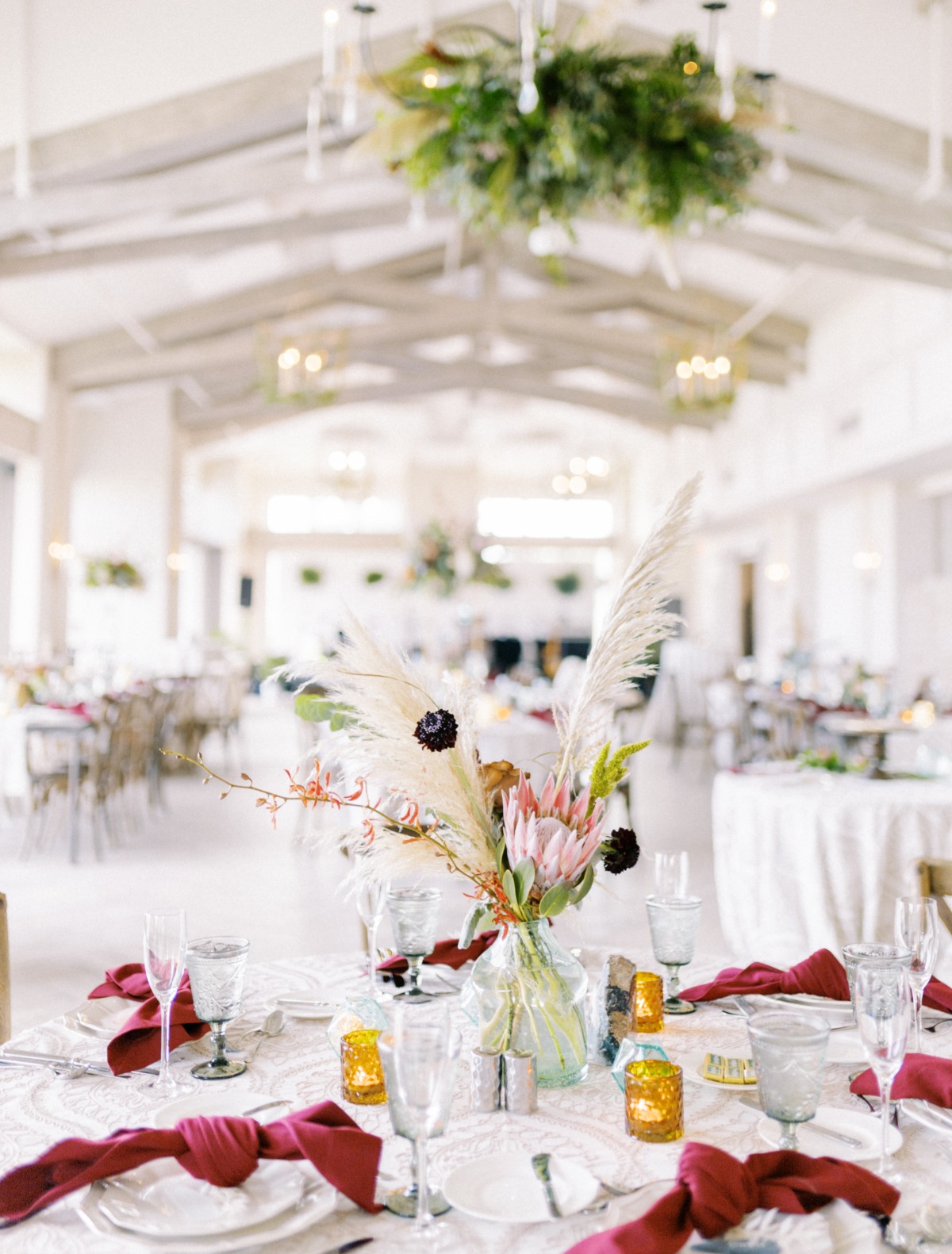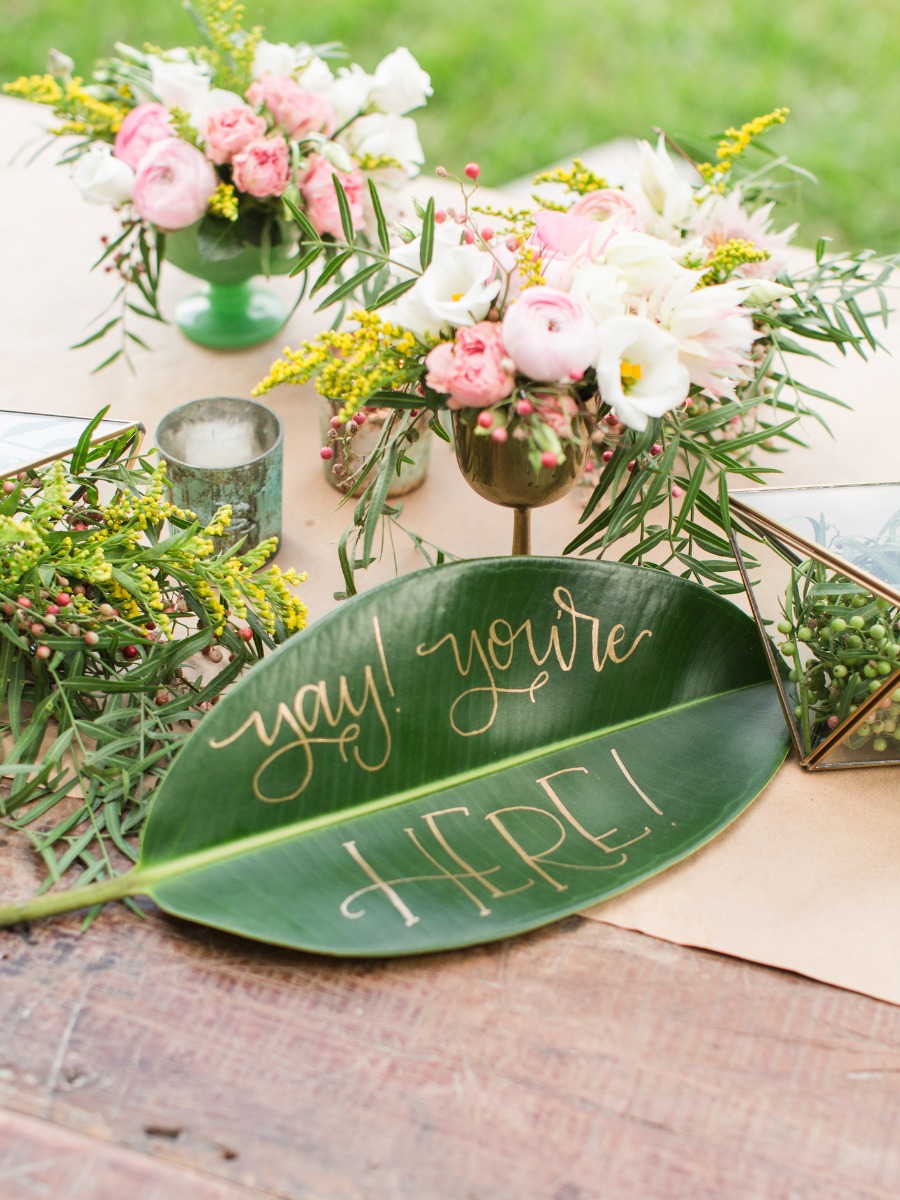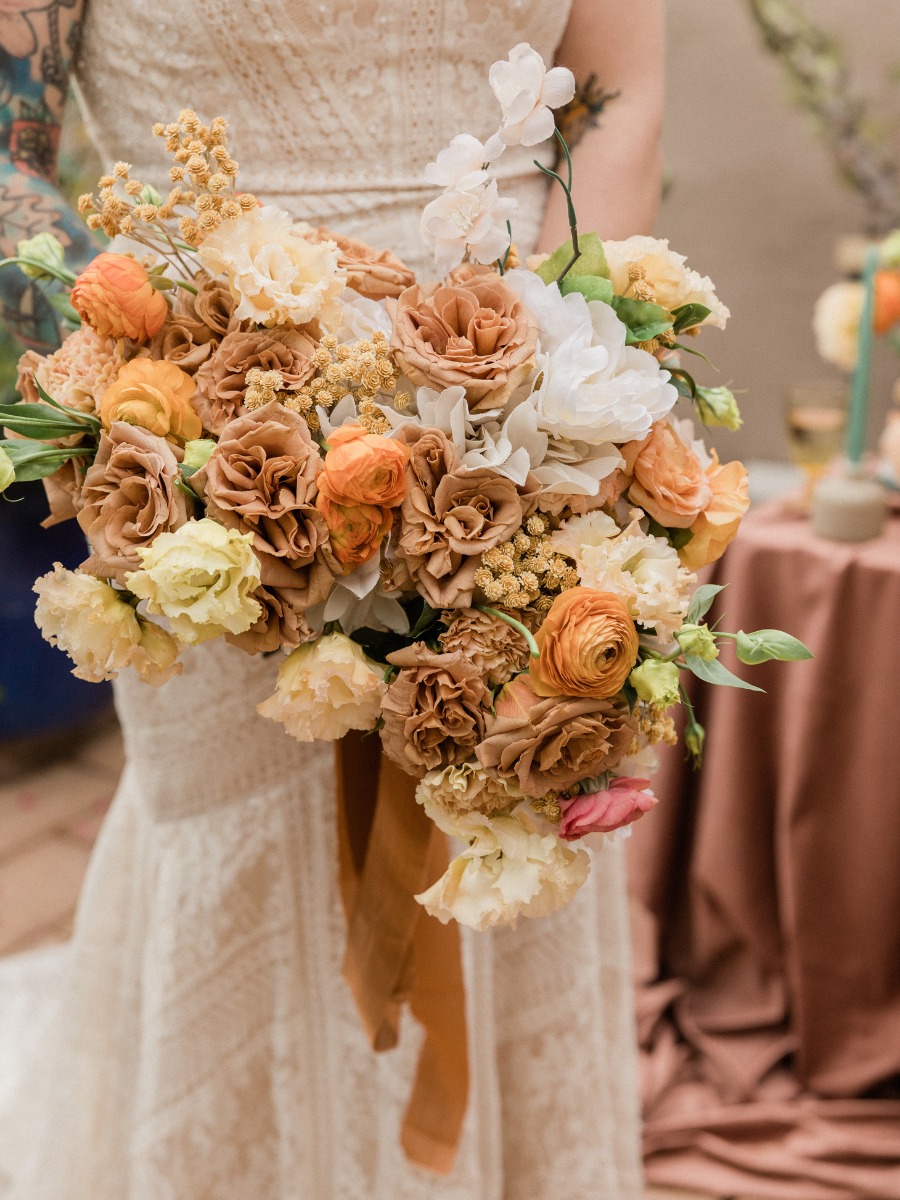Wedding Advice: When to Share Your Opinion (and When to Stay Quiet)

When a loved one is getting married, it’s easy to get swept up in the planning of their big day — especially if you’ve gone through the process yourself. However, weddings are emotional, and even well-intentioned advice can come across as judgmental or pushy. As a result, it’s usually wise to keep your opinions to yourself and let the couple call the shots on their way to the aisle.
In some cases, speaking up can help your engaged friends avoid costly mistakes and reduce stress throughout the wedding planning process. So, how do you know when it’s time to share your two cents and when it’s best to stay quiet?
Joan Wyndrum of Blooms by the Box notes, “A good motto to remember when expressing your opinion to a bride or groom is this: what's my intention? Is it necessary to say this? Does it serve a purpose? It's okay to express your opinion if you feel strongly about something but do so privately rather than in front of others.”
If you’re unsure where your opinion falls, here are five situations that allow you to speak your mind.

#1 When feedback is requested
When a couple asks for your insight, it’s a good sign they welcome your thoughts! Be open to giving your honest opinion, as that’s precisely what your friend needs from you.
Alicia Mae of ILE Events confirms as much, suggesting to “give advice when the couple asks for this assistance and thoughts on a particular subject for their wedding.”
“This also means the communication from the couple should be open to those whose opinion matters to them and know they would love to give their opinion,” Mae adds. “As loved ones are excited for them, sometimes that can come out in overstepping.”
Of course, you should give feedback as gracefully as possible, even when requested. Avoid adding shame or judgment to the mix by leaning on practicality instead of emotions!

#2 When you’re footing the bill
If a couple accepts financial support for their wedding, they should expect some input from those contributing. So if you’re chipping in for the big day, don’t be afraid to speak up in the most important areas to you.
“If you are putting funds towards an event, you get a say!” assures Nora Sheils of Rock Paper Coin and Bridal Bliss . “Always be thoughtful in your delivery, so it's more of a conversation that forces your advice down someone's throat.”
With that said, be mindful that financial backing doesn’t mean you’re entitled to complete control over the plans. It is still their wedding, so pick the elements that matter most and let them personalize their day how they see fit.

#3 When it’s a destination wedding
With more couples choosing to say “I do” in a faraway destination, it’s only natural to want input from guests who must travel to attend. For many, extra time off and travel expenses mean the getaway will double as a vacation, so it’s okay to make suggestions if you plan to go to the wedding.
“Guests invest a lot of their time and money to attend, so it can be argued that certain aspects of the celebration are valid to hear opinions about,” says Jen Avey of Destination Weddings Travel Group . “Guests may raise concerns about the resort venue you choose, whether it be due to budget or perhaps online reviews they've read.”
While it’s acceptable to voice opinions about a destination, manage your expectations in case the couple doesn’t agree! Accept that you may need to adjust plans to meet personal preferences, like staying at a different location or shortening your travel period.

#4 When important details are overlooked
Minor elements like color palettes or flower choices don’t call for unsolicited opinions, but you can feel confident speaking up about significant concerns that could create headaches along the way.
Cathy O’Connell of COJ Events assures that “it is OK to give unsolicited advice if the couple has not thought of an important detail. ‘Did you know it's 120 in July in Palm Springs?’ or ‘Did you know your father doesn't have a passport, so he can't travel to Bora Bora?’” are both excellent examples of times to say something.
Likewise, O’Connell adds that you can also share your thoughts “if you see that they are making a decision that might be offensive or hurtful to someone.” For instance, ‘Did you know your step-father would love to have a dance with you as he raised you from a child?’ or ‘Did you know that having a chuppah is important to your mother?’”
If you make suggestions to the couple, just be sure to do so from the heart, so they know you’re voicing your opinion with love — not judgment!

#5 When safety is on the line
A wedding should be a fun and joyous occasion, not one filled with risks and potential hazards! “If you see something potentially dangerous, it’s probably best to mention it,” cautions Jacqueline Vizcaino of Tinted Event Design and Planning .
Vizcaino elaborates, providing a couple of examples: “If the bride is considering doing a fire dance for her wedding entertainment, and you know that she’s not a trained professional, it’s probably best to voice your opinion and suggest another form of entertainment, or if you see the groom drinking too much before the wedding ceremony, you may want to say something to him or someone else at the wedding party.”
The idea isn’t to stick your nose in a couple’s business as an outside party but to contribute to the discussion and help them achieve the perfect wedding day. In some cases, it’s not about speaking openly but rather a chance to listen and accept the motivating factors behind a couple’s decisions.
“For those who may be tempted to interject opinions, try instead asking the couple to share what drew them to choose X, Y, and Z,” suggests Manda Weaver of Manda Weaver Photography . “The best weddings are a true reflection of the couple. While family and friends play a large part in who they are individually, the most important is celebrating the two unique humans coming together in marriage.”
And in situations where you do need to share feedback, do so in the right setting and manner, as The Garter Girl’s Julianne Smith recommends: “When you advise anyone, it is all about timing and tone. You might think that you know better or are just trying to save a friend or family member from the stress you know is coming. Still, when you just blurt out your opinion, it can get misunderstood quickly, and now you’ve added more stress to an already stressful situation.”
To avoid creating tension, Smith suggests asking a clear, direct question: “Would you like my opinion or some advice here, or should we talk about it later?”
When it comes to wedding planning opinions, it’s always best to tread lightly. Consider whether your feedback will add value to their experience or remove obstacles; otherwise, keep your two cents to yourself and let them enjoy the journey!
Meghan Ely is the owner of wedding PR and wedding marketing firm OFD Consulting. Ely is a sought-after speaker, adjunct professor in the field of public relations, and a self-professed royal wedding enthusiast.
- Flowers: Blooms By The Box
- Event Planning & Design: ILE Events
- Wedding Apps & Insurance: Rock Paper Coin
- Event Planning & Design: Bridal Bliss
- Travel & Transportation: Destination Weddings Travel Group
- Event Planning & Design: COJ Events
- Event Planning & Design: Tinted Events
- Wedding Photographers: Manda Weaver
- Dress & Apparel: The Garter Girl
- Wedding Photographers: Cody Kurtz Photography
- Wedding Photographers: IVS Photography
- Wedding Photographers: Jenna Brisson Photography